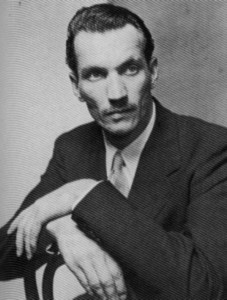

The goal of the campaign is to focus attention on a great humanitarian whose 100th birthday is approaching in April 2014. The culmination of the US campaign is to honor Karski – a native of Poland, a naturalized American and an honorary citizen of Israel – with the Congressional Gold Medal, America’s highest civilian honor in recognition of his lifetime achievement.
“We want to shine light on this remarkable man of integrity, action and courage,” said Andrzej Rojek, one of the founding members of the Jan Karski US National Centennial Committee. “We call him ‘Humanity’s hero.’ ” Karski, who was a professor at Georgetown University School of Foreign Serivce for 40 years from 1953 until his retirement in 1992, was remembered by former Georgetown President Father Leo J. O’Donovan, S.J., his students and friends.
“This was a remarkable man, a devout Roman Catholic who never talked about his personal sacrifices and the courage with which he acted as a courier,” said Fr. O’Donovan. “After he lost everything in the war, including his country, Georgetown became his home.”
After the elegant, kick-off dinner at the Consulate, which is housed in the French Baroque De Lamar Mansion at the aptly named Jan Karski Corner at Madison Avenue and 37th Street, David Harris, executive director of the American Jewish Committee (AJC), said that Karski was a hero of the Jewish people: “In a time when heroes are few and far between, Karski’s example shines.” Harris met and befriended Karski in the 1980s at Jewish-Polish encounters. After Karski’s death, the AJC established an award named for Karski. “Truth be told, we have a hard time finding people on whom we can confer this honor, who rise to his level of moral and physical courage and can, if you will, stand next to him,” Harris noted.
Holocaust survivor Sigmund Rolat, a founding donor for the Museum of the History of Polish Jews, said that had Jews like himself who worked in forced labor camps during World War II known about the existence of Jan Karski, “it would have made all the difference. Just knowing that there was a man out speaking for us – someone who cared about us enough to put his life on the line,” he said, “could have helped us get through that brutal time. But even learning about Karski much later, as I did, can help remind us of strong historic bonds between Polish Christians and Polish Jews – bonds that had been frayed during the War. Jan Karski helps lead us to a better future.”
“In Poland, Karski’s place in the national pantheon is secure but we need to constantly educate young people about what he stood for,” said Ewa Wierzynska, leader of the Jan Karski Unfinished Mission Program at the Polish History Museum. “Fortunately, his story is so incredibly capitvating and he left us such powerful testimonies on tape and in print, that we have a veritable treasure trove.”
Beyond the Congressional Medal, the Karski campaign includes cultural, and educational activities introducing his work and life into history and Holocaust curriculums in the US. “I like calling it ‘Karski karma,’ ” said Robert Billingsley, one of the founding members of the committee who was also a student of Karski’s in the 1960s. “Whenever I mention Karski’s name, it carries a kind of magic with it and doors open.”
In addition to Billingsley, Wierzynska, Rojek, Rolat and Consul General Junczyk-Ziomecka, founding members of the Jan Karski US National Centennial Campaign include Wanda Urbanska, campaign director; Michael Berkowicz, treasurer of the Museum of the History of Polish Jews, and Alex Storozynski, president and executive director of Kosciuszko Foundation.
“Jan Karski would have been proud of this diverse gathering of Poles, Americans, Christians and Jews,” said Consul General Junczyk-Ziomecka, “working together to foster the values of individual responsibility and human solidarity.”
For more information about the campaign or to make a contribution, please go to www.jankarski.net or email info@jankarski.net, attention Wanda Urbanska.
